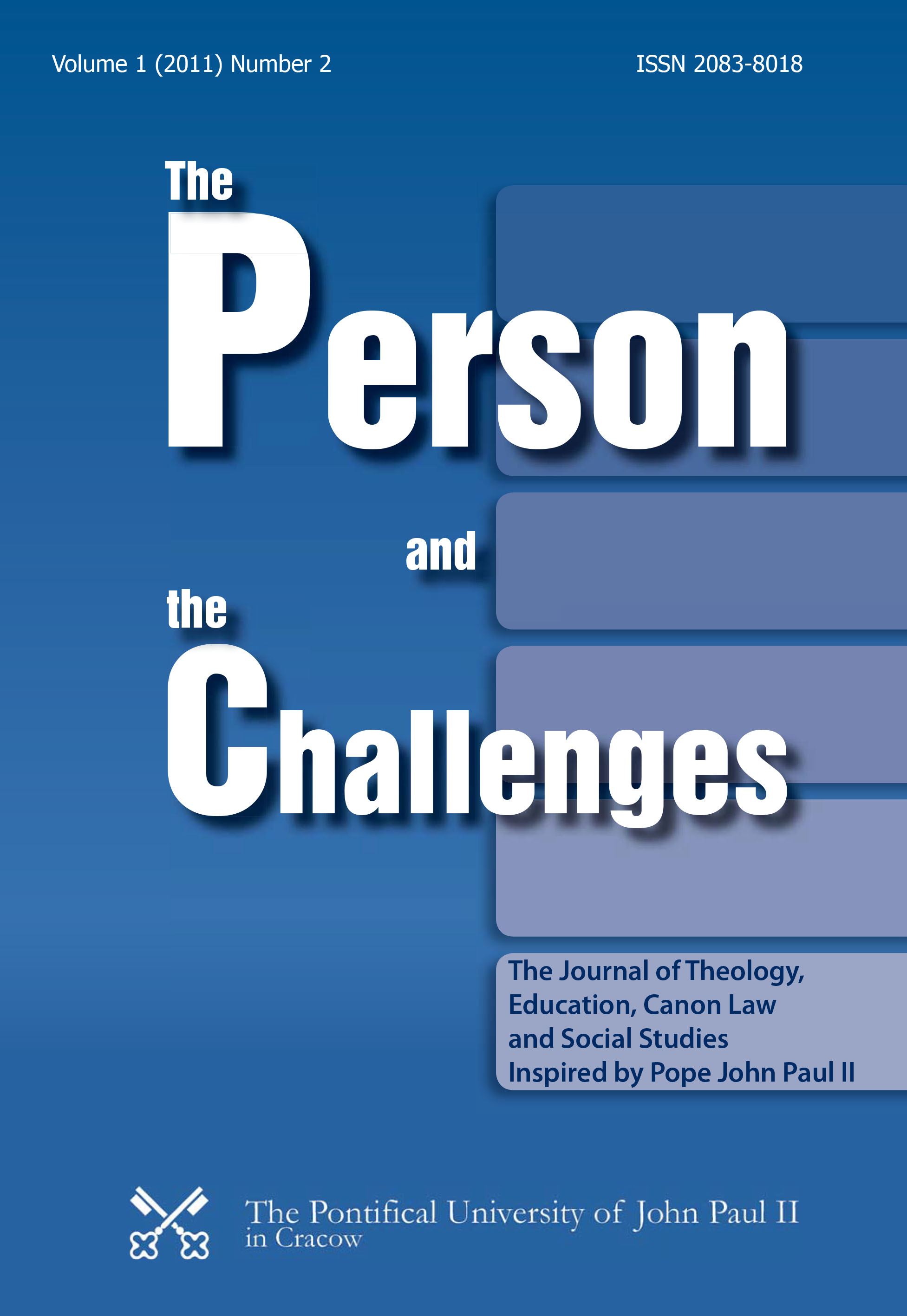Wayfaring and Seafaring A Theological Reading of the “Mediterranean Journey”
DOI:
https://doi.org/10.15633/pch.852Słowa kluczowe:
Journey, pilgrimage, Mediterranean Sea, Judaism, Christianity, Islam, John Paul IIAbstrakt
The article dwells upon the theme of the journey in the Mediterranean, the cradle of the three great monotheistic religions. Taking some paradigms for the journey from mythology, history and from Revelation, the physical journey is taken as a metaphor for the pilgrimage of life, an experience marked by maturation and conversion. This spiritual pilgrimage ultimately consists in the individual’s search for the Divine.
Bibliografia
Bonanno A., Malta: Phoenician, Punic and Roman, Malta 2005, Midsea Books. Dupuis J., Who Do You Say I am? Introduction to Christology, Maryknoll, New York 1994, Orbis Books.
Ford M., Traditions of the Ancients: Vintage Faith Practices for the 21st Century, Nashville, Tennessee 2006, Broadman & Holman.
Hämäläinen R., Pesonen H., Rahkhal M., Sakaranaho T. (eds.), Pilgrimage of Life. Studies in Honour of Professor René Gothoni, Helsinki 2010, The Finnish Society of Sciences and Letters and the Dept of the Study of Religions, University of Helsinki.
John of Taizé, The Pilgrim God. A Biblical Journey, Portland, Oregon 1985, Pastoral Press.
Lash N., Theology for Pilgrims, London 2008, Darton, Longman & Todd. McGrath A.E. (ed.), The Christian Theology Reader, Oxford 2007, Blackwell. Martyn J.R.C. (ed.), The Letters of Gregory the Great, 3 vols, Toronto 2004,
Pontifical Institute of Mediaeval Studies.
Newman J.H., Verses on Various Occasions, London - New York - Bombay 1903, Longmans, Green and Co., revised 2002.
Scerri H., Koinonia, Diakonia and Martyria. Interrelated Themes in Patristic Sacramental Theology as Expounded by Adalbert-G. Hamman, Malta 1999, Foundation for Theological Studies.
Strange R., John Henry Newman. A Mind Alive, London 2010, Darton, Longman & Todd.
Pobrania
Opublikowane
Numer
Dział
Licencja
Prawa autorskie (c) 2015 Hector Scerri

Utwór dostępny jest na licencji Creative Commons Uznanie autorstwa 4.0 Międzynarodowe.
Autorzy publikujący w czasopiśmie udzielają jego wydawcy zgody o następującej treści:
- Autor zachowuje autorskie prawa majątkowe do utworu, a jednocześnie udziela wydawcy czasopisma zgody na jego pierwszą publikację w wersji drukowanej i wersji online na licencji Creative Commons Uznanie autorstwa 4.0 Międzynarodowe oraz zgody na wykonywanie opracowań, w tym przekładów.
- Autor ma możliwość udzielania zgody niewyłącznej na opublikowanie utworu w wersji, która ukazała się w czasopiśmie (np. zamieszczenia go w repozytorium instytucjonalnym lub opublikowania w książce), wraz z informacją o jego pierwszej publikacji w czasopiśmie.
- Autor może umieścić swój utwór online (np. w repozytorium instytucjonalnym lub na swojej stronie internetowej) jeszcze przed zgłoszeniem utworu do czasopisma.

